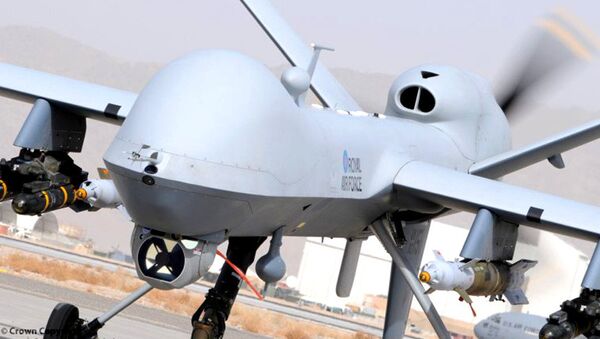Doctor Jürgen Altmann, a physicist and vice chair of the International Committee for Robot Arms Control (ICRAC) says that the "new round in the international arms race" poses "different dangers for international stability." Dr Altmann was quoted in The Local, saying:
"Seven countries worldwide have armed drones, and if Germany and the other Europeans jump in then it's suddenly a lot more. This contributes to an uncontrolled escalation in unmanned aerial vehicles."
The comments follow an announcement that Germany, Italy and France would work together to develop military surveillance drones by 2025, with leaders noting they could also be armed with weapons.
Losing control over the use of force: fully autonomous weapons systems and the international movement to ban them | http://t.co/FzoyViiCGo
— icracnet (@icracnet) April 2, 2015
Many critics of further armed drone development say that an increase in unmanned weapons could further destabilize international relations and add an element of paranoia to the geopolitical stage, with Altmann noting "the fear of such attacks will increase."
April 13-17: Second #CCWUN experts meeting on 'lethal autonomous weapons systems' at @UNGeneva http://t.co/Ub3zhNiARx pic.twitter.com/6yJEBP3UYW
— Stop Killer Robots (@BanKillerRobots) March 17, 2015
Campaign Against 'Killer Robots'
Groups such as the ICRAC are becoming increasingly concerned with the development of autonomous weapons systems, with researchers investigating ways of allowing some weapons to choose their own targets.
It is likely –but not inevitable– that fully autonomous weapons will be deployed soon http://t.co/pyLtg2gVWU #WCC pic.twitter.com/u9yeclfma9
— WCC Internat.Affairs (@WCC_IA) April 2, 2015
However, Dr Altmann fears this could have potentially devastating consequences.
"If you think of two fleets of autonomous weapons systems circling one another, which will attack if they think they are about to be attacked, you have two software systems encountering one another — through real-world military hardware — that have never been tested together."
A number of groups, including the international coalition 'Stop the Killer Robots' campaign have been calling for appropriate laws to be implemented to prevent countries from developing what they believe to be dangerous and unpredictable weapons.
As a result, Dr Altmann and a delegation from the ICRAC will attend a UN session in Geneva later in April to discuss these "Lethal Autonomous Weapons Systems" (LAWS), with the hope of introducing restrictions on their development.



